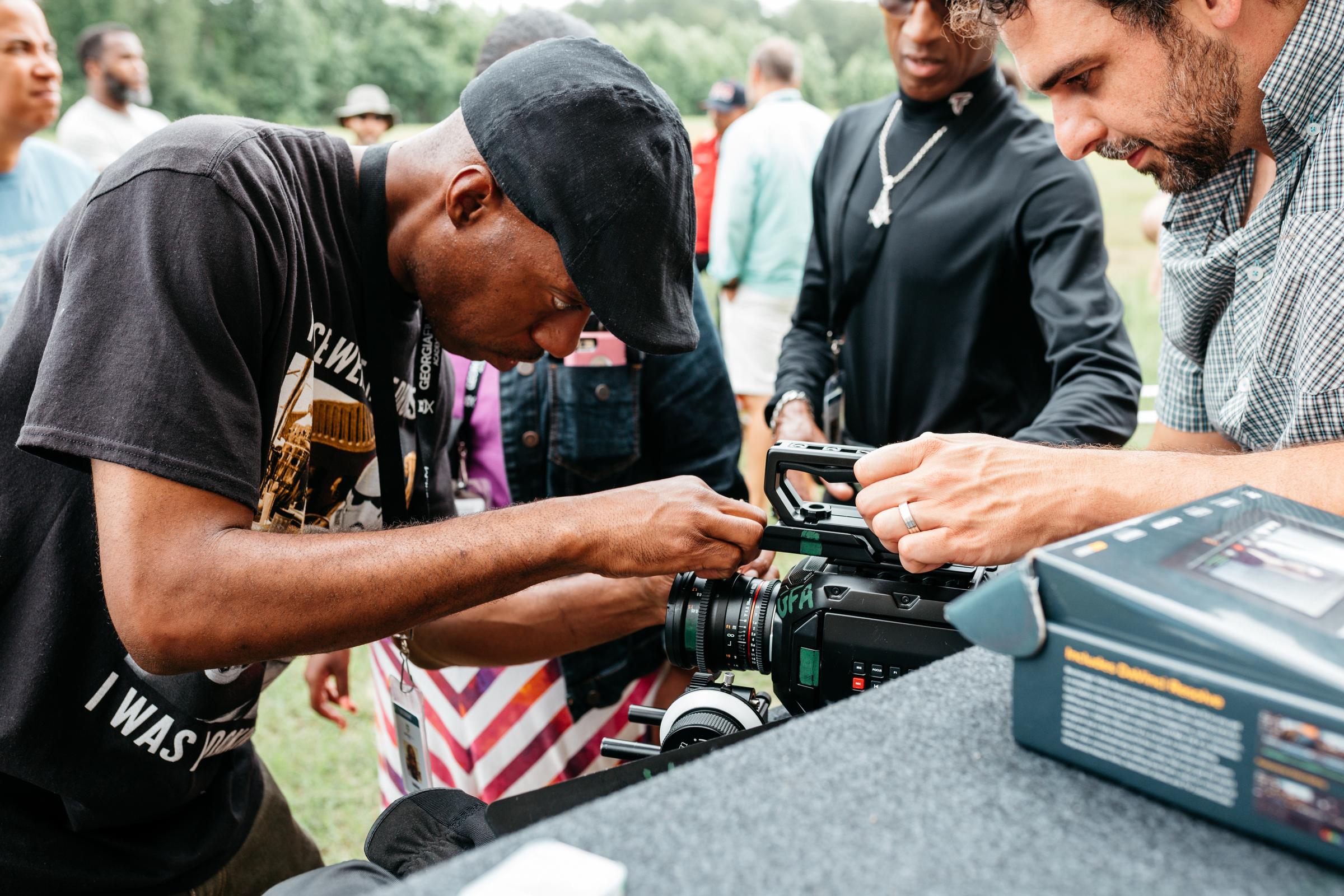Georgia has become a “hot spot” for film and TV production in recent years, largely due to generous state tax credits. But the state didn’t have enough workers to meet industry demands. So, in 2016, the state opened the Georgia Film Academy. The idea was to train enough crew to work on TV and movie sets.
The School Setup
The GFA is a collaboration between Georgia’s university and technical college systems. It doesn’t award degrees. However, it offers college-level courses designed to train students in “below the line” trades, like props, painting and construction.
Many GFA students are enrolled in other state schools. Some colleges teach GFA courses on campus. At others, students can take GFA classes at the school’s campus on the sprawling Pinewood Studios Atlanta lot in Fayetteville. Georgia’s HOPE program covers tuition costs for students who qualify.
Katrina Dygart is a film major at Georgia State University. She’s taking an introductory class at the GFA.
“It’s very different learning the set production side in a classroom versus here, where we have a stage, where we have big productions filming around here,” she says.
“Avengers: Infinity War,” “Spider Man: Homecoming” and “Guardians of the Galaxy Vol. 2” are just some of the feature films made at Pinewood.
All students take a class called “GFA One,” where they learn the basics of set production. Then, they can move on to “craft” courses, where they can specialize in lighting and electric or set construction, for example. Students can also apply for internships, which are highly competitive. GFA executive director Jeff Stepakoff says those practicums take place in active production environments.
“Halfway through an internship, someone will grab one of our students and say, ‘Hey, you’re really good,’” Stepakoff says. “’Let’s get you signed up, get you registered and get you actually coming to work here on Monday in my department.’ And then these former students virtually overnight disappear into the workforce.”
That’s made it hard to track how many former students are now working in film and TV. Stepakoff estimates the number at 100. He’s proud of what the school has accomplished so far. About 1,000 students have taken a Georgia Film Academy class since it opened just over a year ago.
The Missing Link
However, Stepakoff says, one piece of the business is missing in Georgia: content creation, or what the industry calls “above the line” trades. Most TV shows and movies are created, written and edited in New York or Los Angeles.
In fact, that’s why Stepakoff was living in LA until three years ago.
“[It’s] worth noting that my family is here in Georgia,” he says. “I’m raised here in Georgia. I have a professorship here in Georgia, but I’m out in California working on a television series.”
In fiscal year 2017, the film industry brought $9.5 billion into Georgia. Stepakoff says developing content will not only mean more money, but it would help cement Georgia’s legacy as a top location for the film and TV business.
“We had 409 writers’ rooms in North America last year,” he says. “About 15 or 16 of those writers’ rooms were in New York. All the rest were in Los Angeles.”
Expansion Plans
Stepakoff says the film academy plans to branch out into “above the line” trades eventually. More immediately, he says, the school is responding to another demand. Since the academy opened, it’s been bombarded with requests to teach high school students.
That wasn’t part of the original plan. But Stepakoff says the school is responding to the requests.
“As opposed to, ‘No we can’t do that,’ or, ‘No, that’s not part of our charter,’ we think that our mission is best served by saying, ‘Yes, we’ll figure it out.’”
This summer the academy offered its first class for high school teachers. Teachers learned an introductory curriculum. They’ll take it back to their schools and teach their students. Christopher White is an audio/visual teacher at Lakeside High School in DeKalb County. He hopes exposing his students to the curriculum will get them to think about careers in film.
“If you just take the time to learn this and apply yourself to it, these things can be within your grasp, and you can move into the industry if you would like,” he says.
Collaborating with high schools is one way the academy is expanding its reach. It’s also planning to offer more craft courses. The GFA also wants to help bring the film industry throughout the state. School officials are talking with communities about growing and supporting their own film industries.











